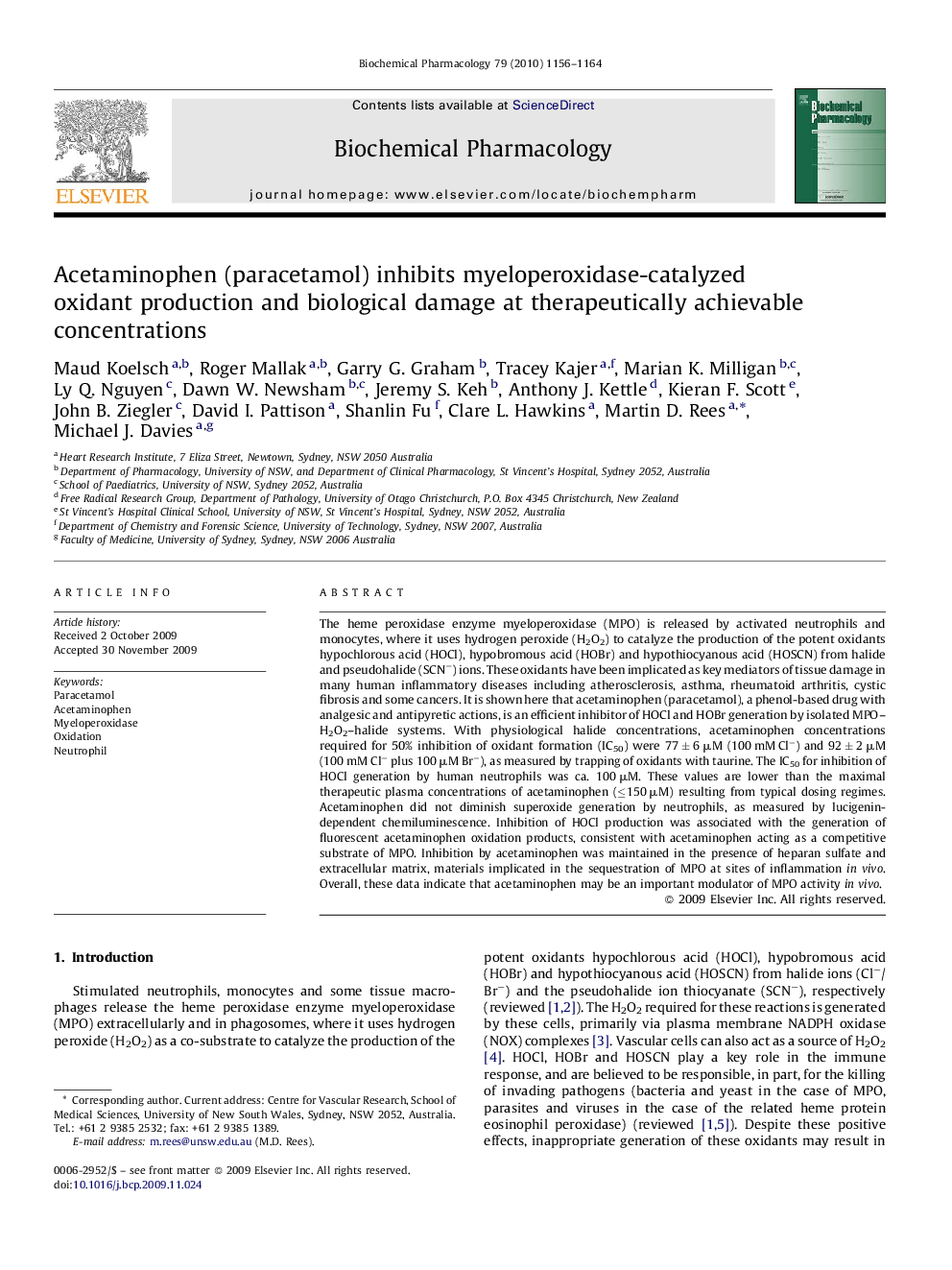| کد مقاله | کد نشریه | سال انتشار | مقاله انگلیسی | نسخه تمام متن |
|---|---|---|---|---|
| 2513542 | 1118421 | 2010 | 9 صفحه PDF | دانلود رایگان |

The heme peroxidase enzyme myeloperoxidase (MPO) is released by activated neutrophils and monocytes, where it uses hydrogen peroxide (H2O2) to catalyze the production of the potent oxidants hypochlorous acid (HOCl), hypobromous acid (HOBr) and hypothiocyanous acid (HOSCN) from halide and pseudohalide (SCN−) ions. These oxidants have been implicated as key mediators of tissue damage in many human inflammatory diseases including atherosclerosis, asthma, rheumatoid arthritis, cystic fibrosis and some cancers. It is shown here that acetaminophen (paracetamol), a phenol-based drug with analgesic and antipyretic actions, is an efficient inhibitor of HOCl and HOBr generation by isolated MPO–H2O2–halide systems. With physiological halide concentrations, acetaminophen concentrations required for 50% inhibition of oxidant formation (IC50) were 77 ± 6 μM (100 mM Cl−) and 92 ± 2 μM (100 mM Cl− plus 100 μM Br−), as measured by trapping of oxidants with taurine. The IC50 for inhibition of HOCl generation by human neutrophils was ca. 100 μM. These values are lower than the maximal therapeutic plasma concentrations of acetaminophen (≤150 μM) resulting from typical dosing regimes. Acetaminophen did not diminish superoxide generation by neutrophils, as measured by lucigenin-dependent chemiluminescence. Inhibition of HOCl production was associated with the generation of fluorescent acetaminophen oxidation products, consistent with acetaminophen acting as a competitive substrate of MPO. Inhibition by acetaminophen was maintained in the presence of heparan sulfate and extracellular matrix, materials implicated in the sequestration of MPO at sites of inflammation in vivo. Overall, these data indicate that acetaminophen may be an important modulator of MPO activity in vivo.
Figure optionsDownload as PowerPoint slide
Journal: Biochemical Pharmacology - Volume 79, Issue 8, 15 April 2010, Pages 1156–1164